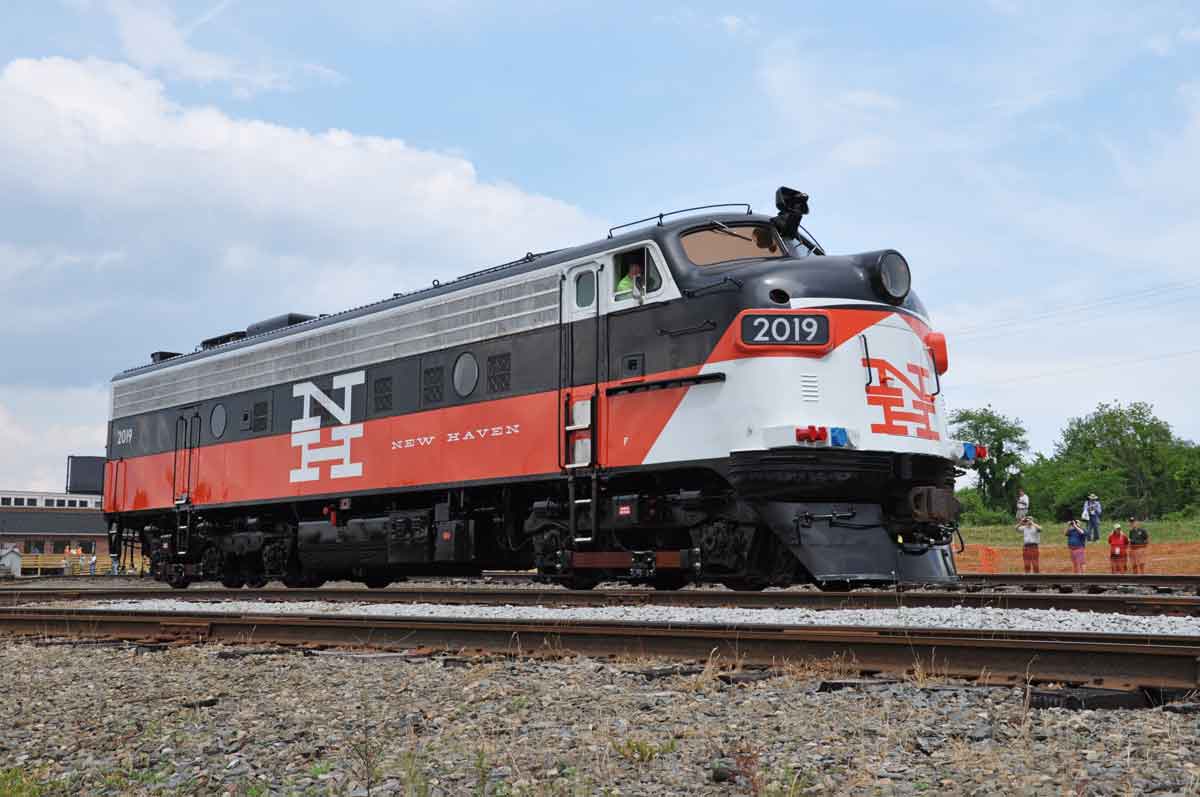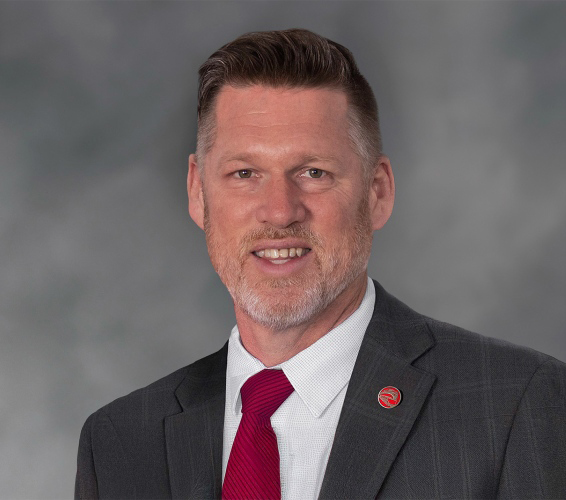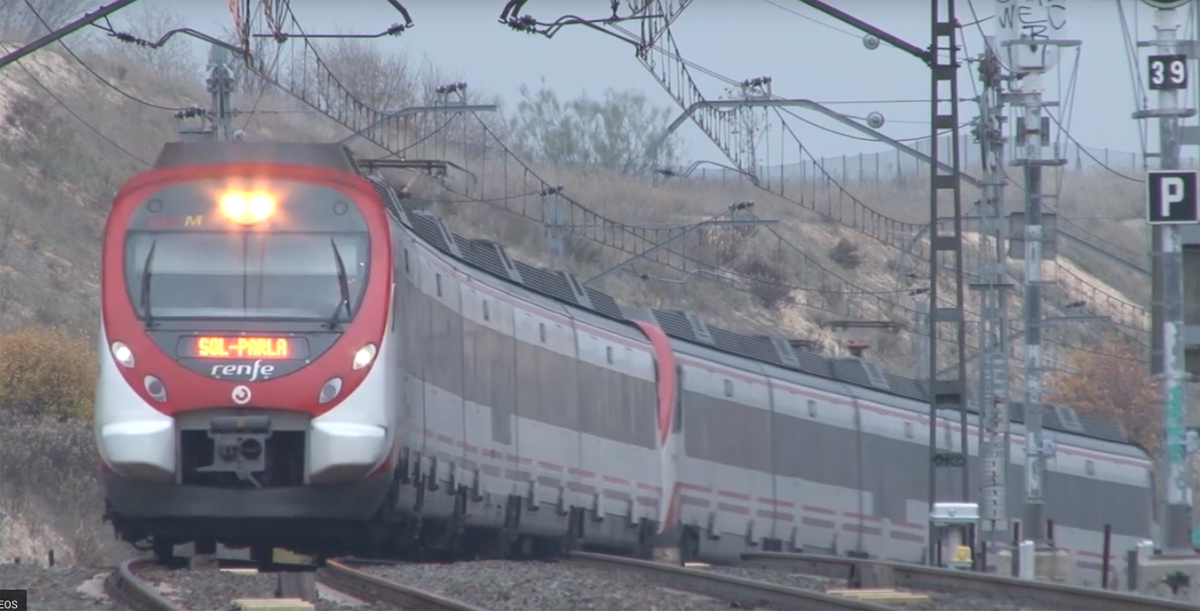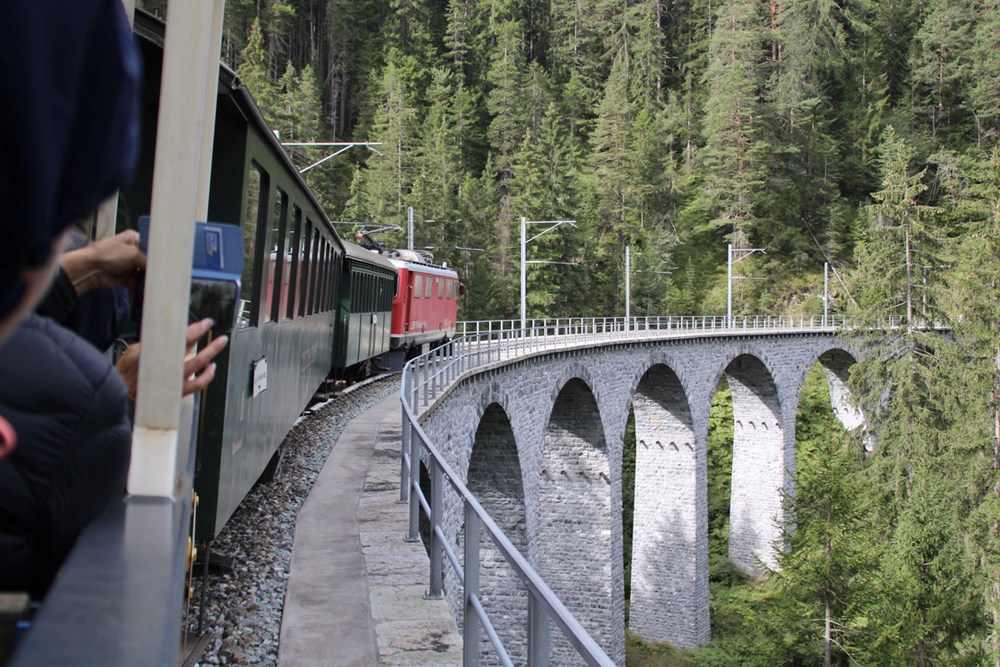Friday morning rail news:
— Utah’s legislature has again passed a law which would remove the exemption for locomotive fuel from the state’s fuel tax — a bill similar to one vetoed by Gov. Gary Hebert earlier this year. The Provo Daily Herald reports the funds from 4.85% tax is expected to generate about $2.6 million annual, according to the bill’s sponsor, Rep. Joel Ferry (R-Brigham City). The money generated would see 80% go into an account overseen by the legislature for grade-crossing improvements, with 10% for grants from the Utah Department of Transportation for grade-crossing work and the remaining 10% to fund related environmental impact studies. Hebert vetoed the earlier version of the bill saying it was “contrary to sound tax policy.”
— The San Francisco Municipal Transportation Agency has voted to increase Muni rail and bus fares in July, a move that one lawmaker claims is illegal and has asked the city attorney to investigate. Curbed San Francisco reports the Muni board approved fare increases as high as 12% on Tuesday, effective in July. That prompted Supervisor Dean Preston call for an investigation is guilty of price gouging during a state of emergency. State law limits price increases to 10% during an emergency, although government agencies are protected.
— Beginning today, LA Metro is closing the entrances to some subway stations to decrease the number of areas of public contact and help Metro maintain the cleaning process by focusing custodial resources where they are most needed. All seven B (Red) Line stations will remain open and will maintain ADA access. A list of entrances that will be closed and those still available is here.















Show the third paragraph to your cat and ask the cat if it makes any sense. (Well, in California, the less sense it makes to a cat, the more sense it makes to a government agency.) Closing one entrance doubles the number of people at the other entrance.
Here’s what makes sense to a government agency in California. If only one entrance of the two is open, make both open to contain the virus. If on the other hand both are open, close one of the two to contain the virus.
Anna, in order to answer your question you would need to know how the state will determine the amount of fuel pumped into locomotives in Utah. If it is at the fuel pump at the engine terminals it wouldn’t make a difference as it is metered there. When I worked for Conrail at Selkirk Diesel Shop we would get 10 tank cars every few days that were filled in Syracuse and transported to us. We then emptied them into our tank farm which was connected to the fuel plant, so your idea is feasible if it would be economical. Since they are running a train anyway what is the additional cost of running 10 tank cars a day in a train after you pay the initial costs for the cars and terminal facilities.
I am glad they are doing this Utah Transit Authority is the agency that sets the tax and if you tax the locomotives you can divert that money to pay for Frontrunner and other projects.
How much does it cost to operate a tank car for, say five hundred miles? Would it be cheaper to buy the diesel in, say, New Mexico, tank it to the yard in Utah, and use it to fill the locomotive tanks there?
On the other hand, states will be desperate for any source of revenue for the foreseeable future so you can be sure we will be seeing more of this sort of thing.
The above comments are generic in nature and do not form the basis for an attorney/client relationship. They do not constitute legal advice. I am not your attorney. I’m stuck in Or A Gun, and time keeps dragging on …
@John Blaubach exactly.
The Railroads would just plan accordingly, and just strategize how to run trains thru Utah, no brainer.
Notice the omission of UT highway users’ contributions to RR grade crossing improvement projects. Most of the time the RR was there first.
Love that phrase “government agencies are protected”. Why aren’t the people protected? Don’t try to defend governments that intentionally take our jobs away to “protect us”.
Gotta love how government always excepts itself from its laws.
Seriously, a price hike when so many are out of work is tone deaf at best. But the public demands transportation, and doesn’t want to pay for it. So is there a happy middle ground?
Muni gives away Fast Passes to unemployed and those on general assistance, as a way to help those look for work.
All MUNI had to do was stick to a 10% or less price increase and there wouldn’t have been an issue, not sure why they didn’t figure that out ahead of time.